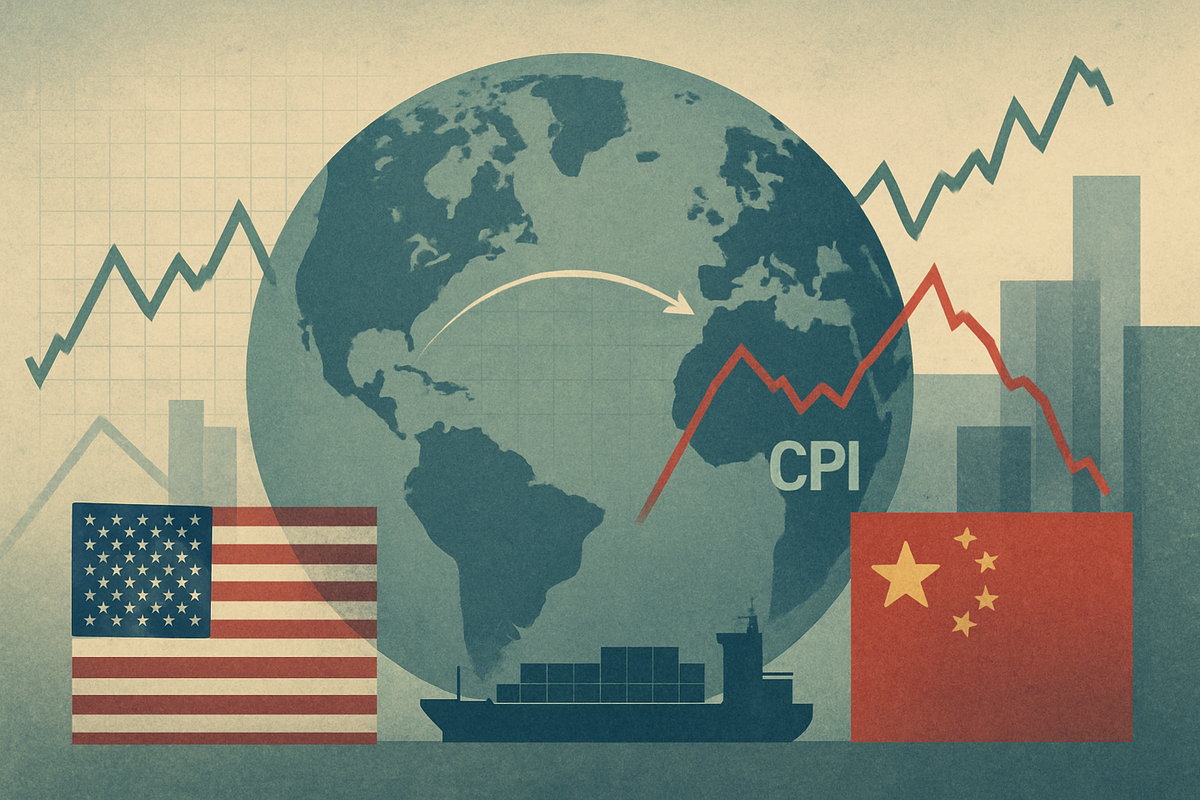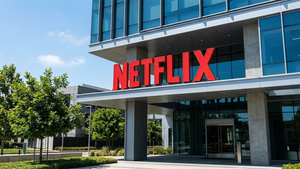
The week of October 13, 2025, promises to be a crucible for global financial markets, with investors grappling with a confluence of high-stakes events. Escalating US-China trade tensions, a critical but delayed Consumer Price Index (CPI) data release, and the highly anticipated commencement of the third-quarter corporate earnings season are creating an environment of profound uncertainty and heightened volatility. Against a backdrop of an ongoing U.S. government shutdown, market participants are bracing for potential sharp swings as they attempt to decipher the immediate and long-term implications of these interconnected developments.
Investor sentiment is characterized by an overriding sense of caution, with every new headline regarding geopolitical developments or economic indicators capable of triggering significant market reactions. The interplay between these factors—geopolitical maneuvering, inflationary pressures, and corporate performance—will dictate the market's trajectory in the coming days and weeks.
A Trifecta of Market Movers: Geopolitics, Inflation, and Corporate Health
The fragility of US-China relations has been a dominant theme entering the week. On Friday, October 10, President Donald Trump announced a significant escalation, threatening to impose an additional 100% tariff on Chinese imports starting November 1, alongside new export controls on critical U.S.-made software. This aggressive stance was explicitly framed as retaliation for China's recent restrictions on rare-earth exports, leading to a sharp sell-off in U.S. equities. The S&P 500 plummeted 2.7%, the Dow Jones Industrial Average (DJIA) fell 1.9%, and the Nasdaq Composite (NASDAQ) declined 3.6% on Friday, with U.S.-listed Chinese stocks also experiencing a significant plunge.
However, the immediate implications for the week saw a partial reversal of this sentiment. On Sunday evening, October 12, President Trump offered a more conciliatory tone, signaling openness to a potential trade deal with China, stating, "Don't worry about China, it will all be fine" and that the U.S. "wants to help China, not hurt it." This rhetorical softening sparked a rebound in U.S. stock futures on Monday, October 13, as investors cautiously hoped for a de-escalation of trade hostilities. Despite this momentary calming of nerves, the underlying tensions persist, underscored by China's announcement of new port fees on U.S. ships effective October 14. Markets will remain acutely sensitive to any further statements or developments, particularly in the lead-up to a planned meeting between President Trump and President Xi Jinping at the upcoming APEC summit later this month.
Adding another layer of complexity is the delayed release of the September 2025 CPI report, a critical inflation gauge. Originally scheduled for October 15, the Bureau of Labor Statistics (BLS) announced a postponement to October 24, 2025, at 8:30 AM ET, due to the ongoing U.S. government shutdown. This specific release is crucial for the annual Cost-of-Living Adjustment (COLA) calculation for social security 2026 payments. Forecasters, including Goldman Sachs (NYSE: GS), anticipate a continued rise in prices, albeit at a slower pace than in August, with core prices projected to increase by 0.26% in September and the year-over-year CPI reading expected to tick up by 0.2% to 3.1%. The absence of real-time economic data complicates the Federal Reserve's decision-making process regarding interest rates, especially as another 25-basis-point cut is widely expected on October 29. This data vacuum is contributing to lower trading volumes and subdued volatility, but the eventual release of delayed reports could trigger a surge in market activity.
Corporate Crossroads: Winners and Losers in a Shifting Landscape
The commencement of the third-quarter corporate earnings season this week will undoubtedly bring a renewed focus on individual company performance amidst the broader economic uncertainties.
Among the key players reporting this week, JPMorgan Chase (NYSE: JPM) is projected to report strong earnings, with an anticipated 11.4% year-over-year increase in earnings per share and a 6.8% rise in revenue. Other banking giants like Citigroup (NYSE: C), Goldman Sachs (NYSE: GS), and Wells Fargo (NYSE: WFC) will also provide crucial insights into the health of the financial sector. In the technology space, ASML (NASDAQ: ASML) will be closely scrutinized for its results, offering a glimpse into future growth prospects amid ongoing tariff pressures. TSMC (NYSE: TSM), the world's largest chip manufacturer, is another focal point, particularly given the strong sales of AI chips in the first half of 2025. Airlines such as United Airlines (NASDAQ: UAL) and American Airlines (NASDAQ: AAL) will report, providing indicators of consumer travel demand.
Companies heavily reliant on discretionary spending may face headwinds due to sustained consumer pessimism about financial futures and job prospects. Conversely, companies with robust international diversification or those less exposed to the direct impacts of trade tariffs might demonstrate greater resilience. The earnings reports will serve as a vital reality check, revealing which companies are successfully navigating the current economic environment and which are struggling to adapt to evolving market conditions and geopolitical shifts.
Broader Implications and Historical Parallels
This confluence of events—geopolitical tensions, inflation concerns, and corporate earnings—fits into a broader narrative of an increasingly interconnected and volatile global economy. The escalating US-China trade dispute is not an isolated incident but rather a continuation of a long-term strategic competition between the two global powers, with implications for supply chains, technological innovation, and international trade norms. The potential for ripple effects on competitors and partners is substantial, as companies are forced to re-evaluate their global sourcing and manufacturing strategies.
The delay in CPI data due to a government shutdown highlights the fragility of economic data collection and its impact on monetary policy. Historically, periods of data uncertainty have led to increased market speculation and a reluctance by central banks to make swift policy adjustments. This situation draws parallels to past government shutdowns where critical economic reports were delayed, creating temporary blind spots for investors and policymakers alike. The Federal Reserve's challenge in making informed interest rate decisions without comprehensive, real-time data underscores the importance of stable government operations for market stability.
Regulatory and policy implications are also significant. New tariffs and export controls could prompt a re-evaluation of international trade agreements and lead to increased calls for domestic production and reshoring of manufacturing. The ongoing debate surrounding inflation and the Fed's response will continue to shape fiscal and monetary policy decisions, impacting everything from borrowing costs for businesses to consumer purchasing power.
The Path Forward: Scenarios and Strategic Adaptations
Looking ahead, the short-term market outlook remains highly dependent on the fluidity of US-China trade negotiations. Any definitive progress or further escalation could trigger significant market movements. Investors will be closely watching for signals from the APEC summit regarding the planned meeting between President Trump and President Xi Jinping. In the long term, companies may need to consider strategic pivots, such as diversifying their supply chains away from China or investing in automation to mitigate the impact of rising labor costs and trade barriers.
Market opportunities may emerge for companies that can demonstrate resilience in the face of these challenges, perhaps through innovative product offerings or strategic partnerships. Conversely, companies heavily exposed to the direct impacts of tariffs or those with weak balance sheets could face significant challenges. Potential scenarios range from a gradual de-escalation of trade tensions, leading to a market rebound, to a prolonged period of trade hostilities, resulting in sustained market volatility and economic uncertainty. The delayed CPI data, once released, will provide crucial clarity on inflationary pressures, influencing the Fed's future interest rate decisions and impacting sectors sensitive to borrowing costs.
Wrapping Up: Key Takeaways and Investor Watchpoints
In summary, the week of October 13, 2025, is a pivotal moment for financial markets, defined by the intricate interplay of US-China tensions, delayed CPI data, and the onset of corporate earnings season. The market is moving forward with a heightened sense of caution and a readiness for rapid shifts based on breaking news. The immediate impact of trade rhetoric has been evident in stock market fluctuations, while the absence of crucial inflation data has added an element of suspense to monetary policy expectations.
Investors should closely monitor developments in US-China trade negotiations, paying particular attention to any official statements or outcomes from diplomatic meetings. The eventual release of the CPI report on October 24 will be a critical data point, offering insights into inflation trends and influencing the Federal Reserve's interest rate decisions. Furthermore, individual corporate earnings reports will provide a granular view of company performance and the ability of businesses to navigate the current economic climate.
The lasting impact of these events could reshape global trade dynamics, influence monetary policy for months to come, and redefine corporate strategies. As we move into the coming months, investors should watch for sustained trends in inflation, the trajectory of US-China relations, and the adaptability of public companies (e.g., Apple (NASDAQ: AAPL), Nike (NYSE: NKE), Tesla (NASDAQ: TSLA)) to a rapidly evolving geopolitical and economic landscape.
This content is intended for informational purposes only and is not financial advice





